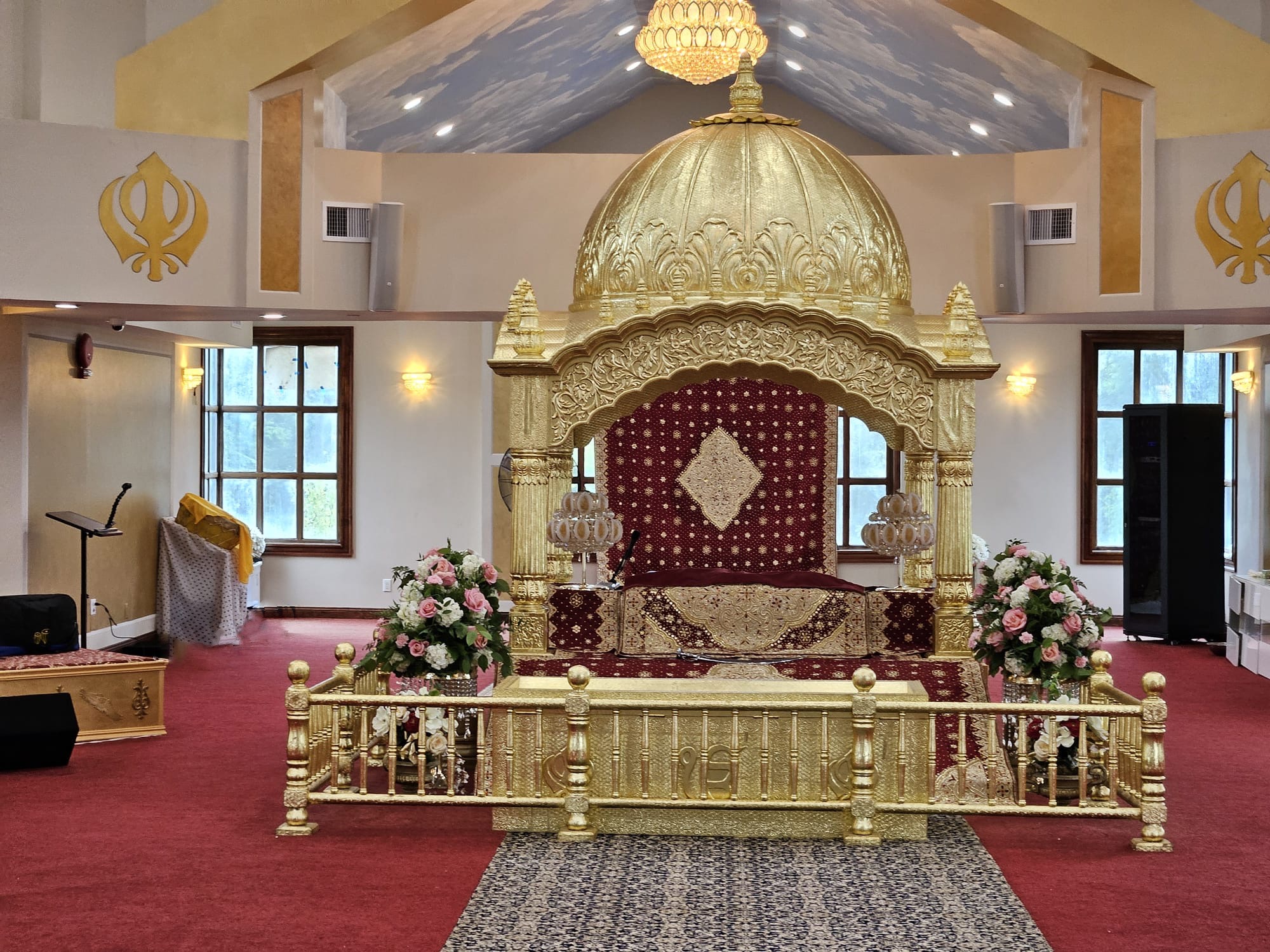Discover the Essence of Sikhism
Gurdwara Mata Sahib Kaur, Glen Cove NY
Explore the rich heritage, beliefs, and practices of Sikhism, a faith that promotes equality, service, and devotion.
About Sikhism
Historical Timeline of Sikhism
Trace the key events and milestones that have shaped Sikhism over the centuries.
1469
Birth of Guru Nanak Dev Ji
Guru Nanak Dev Ji, the founder of Sikhism, was born in 1469 in Talwandi, now known as Nankana Sahib in Pakistan. His teachings laid the foundation for the Sikh faith.
1604
Compilation of Guru Granth Sahib
The Guru Granth Sahib, the central religious scripture of Sikhism, was compiled by Guru Arjan Dev Ji, the fifth Guru, in 1604. It contains hymns and writings of the Sikh Gurus and other saints.
1699
Formation of the Khalsa
Guru Gobind Singh Ji, the tenth Guru, established the Khalsa in 1699, a collective body of initiated Sikhs, to uphold righteousness and justice.
1708
Guru Granth Sahib Declared Eternal Guru
In 1708, Guru Gobind Singh Ji declared the Guru Granth Sahib as the eternal Guru of the Sikhs, ensuring that the scripture would guide the community forever.
Fundamental Beliefs
Core Principles of Sikhism
Sikhism is founded on the principles of equality, community service, and the oneness of God. Sikhs believe that all humans are equal in the eyes of God, regardless of race, gender, or social status. This belief in equality is reflected in the practice of Langar, a community kitchen where everyone is welcome to share a meal. Additionally, Sikhs are encouraged to engage in Seva, or selfless service, to help those in need. The concept of the oneness of God is central to Sikhism, emphasizing that there is only one God who is the same for all people, regardless of their religion or background.
Daily Practices
Sikh Rituals and Traditions
Daily practices in Sikhism include prayer, community service, and participation in Gurdwara. Sikhs begin their day with Nitnem, a series of prayers that are recited in the early morning, evening, and before bedtime. These prayers help Sikhs stay connected to their faith and remind them of their spiritual duties. Community service, or Seva, is another important aspect of daily life, where Sikhs volunteer their time and resources to help others. Participation in Gurdwara, the Sikh place of worship, is also essential. Sikhs gather at the Gurdwara to pray, listen to hymns, and partake in Langar, reinforcing the values of community and equality.

The Sikh Gurus
The Sikh Gurus have made significant contributions to Sikh philosophy and community. Guru Nanak Dev Ji, the founder of Sikhism, emphasized the importance of equality, justice, and devotion to one God. Guru Angad Dev Ji introduced the Gurmukhi script, which is used to write the Punjabi language. Guru Amar Das Ji established the practice of Langar and promoted social equality. Guru Ram Das Ji founded the city of Amritsar and initiated the construction of the Golden Temple. Guru Arjan Dev Ji compiled the Adi Granth, the holy scripture of Sikhism. Guru Hargobind Ji introduced the concept of Miri-Piri, combining spiritual and temporal authority. Guru Har Rai Ji and Guru Har Krishan Ji emphasized compassion and service. Guru Tegh Bahadur Ji sacrificed his life for religious freedom. Guru Gobind Singh Ji founded the Khalsa, a collective body of initiated Sikhs, and completed the Guru Granth Sahib, which is now the eternal Guru of the Sikhs.

Guru Nanak Dev Ji
Founder of Sikhism

Guru Angad Dev Ji
Second Guru

Guru Amar Das Ji
Third Guru

Guru Ram Das Ji
Fourth Guru
What Our Community Says

“Being a part of the Gurdwara Mata Sahib Kaur community has deepened my understanding of Sikhism and enriched my spiritual journey.”
– Harpreet Singh

“The teachings and practices at our Gurdwara have brought me closer to my faith and helped me lead a more fulfilling life.”
– Jasleen Kaur
